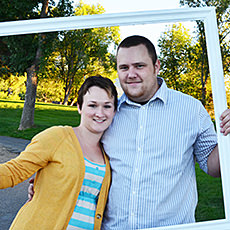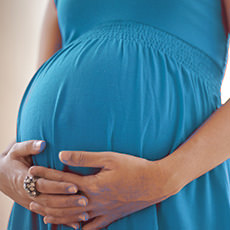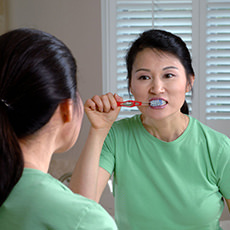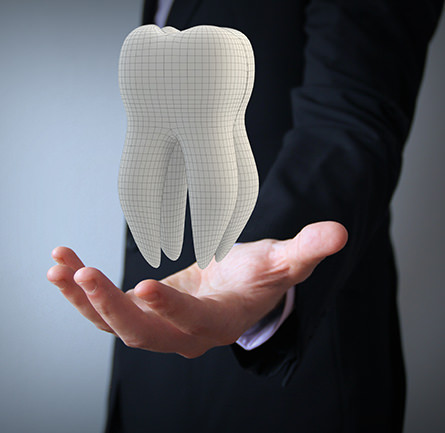Frequently Asked Questions
- What should I do in a dental emergency?
- Should I be concerned about X-rays?
- What is the best protection for teeth while playing sports?
- Does fluoride help prevent cavities?
- Is there special care of teeth during pregnancy?
- How do I care for my baby’s teeth?
- What can I do about bruxism?
- What causes sensitive teeth and how can I prevent it?
- What part does diet play in healthy teeth?
- How do I prevent cavities?
- What are my options for replacing missing teeth?

Toothache: Clean the area of the affected tooth. Rinse the mouth thoroughly with warm water and use dental floss to dislodge any food that may be caught between the teeth. If the pain persists, contact your dentist.
Cut or bitten tongue, lip or cheek: Apply ice to the injured areas to help control swelling. If there is bleeding, apply firm but gentle pressure with a gauze or cloth. If bleeding cannot be controlled by simple pressure, call a doctor or visit the emergency room.
Knocked out or displaced baby tooth:Contact our office immediately.
Knocked out or displaced permanent tooth: The patient must see a dentist IMMEDIATELY! Time is a critical factor in saving the tooth. If possible, find the tooth. Handle it by the crown, not the root. You may rinse the tooth with water only. Do not scrub, clean with soap, or handle the tooth unnecessarily. Inspect the tooth for fractures. If there aren’t any, try to reinsert the tooth in the socket. Have the patient hold the tooth in place by biting on gauze. If you cannot reinsert the tooth, transport it in a cup containing the patient’s saliva or milk. If the patient is old enough, he or she may also carry the tooth in the mouth (beside the cheek). Get to the dentist as son as possible.
Chipped or fractured tooth:Contact our office immediately. Quick action can save the tooth, prevent infection, and reduce the need for extensive dental treatment. If possible, locate and save any broken tooth fragments and bring them with you to the dentist.

X-rays are a vital part of the dental diagnostic process. Without them, certain dental conditions can and will be missed. X-rays detect much more than cavities. With an X-ray, your dentist can see where new teeth are coming in, diagnose bone diseases, evaluate the results of an injury, or plan orthodontic treatment. If dental problems are found and treated early, dental care is more comfortable and affordable.
We are particularly careful to minimize the exposure of patients to radiation. With modern safeguards, the amount of radiation you receive during a dental X-ray examination is extremely small. The risk is negligible and represents a far smaller risk than an undetected and untreated dental problem. Lead body aprons and shields are used as a protection. We use digital equipment that filters out unnecessary X-rays and restricts them to the area of interest.

When athletes are on the field, a sports guard is probably not their main concern. However, an athlete is 60 times more likely than others to suffer harm to the teeth! When choosing a sports guard, find one that fits properly and comfortably, is resilient, tear resistant, and easy to clean, and doesn’t restrict speech or breathing.

Fluoride is a mineral that occurs naturally in all water sources, including the oceans. Research has shown that fluoride not only prevents cavities in children and adults, it also helps repair the early stages of tooth decay even before the decay is visible. During childhood, when teeth are still forming, fluoride works by making tooth enamel more resistant to the acid that causes tooth decay. For adolescents and adults, the benefits are just as great. Fluoride helps repair or re-mineralize areas where the acid attacks have already begun. For older adults, fluoride has been effective in reducing tooth decay along the gum line (often called “root” caries).

During pregnancy, your hormone levels rise considerably. Gingivitis is especially common from the second through the eighth month of pregnancy. Gingivitis may cause red, puffy, or tender gums that tend to bleed easily. If serious enough it could lead to periodontal disease. It is important to brush thoroughly with fluoride toothpaste twice a day and to floss. Maintaining a healthy diet while pregnant will help prevent tooth decay and keeps you and your baby healthy.

Never let your baby or toddler fall asleep with a bottle containing milk, formula, fruit juices, or sweetened liquids or a pacifier dipped in sugar or honey. Begin oral care early. Wipe your baby’s gums with a wet washcloth or a clean gauze pad after each feeding. Check your child’s teeth regularly as soon as the first tooth comes in. Letting a child chew on a very soft toothbrush helps clean their teeth.
Pacifiers and thumbs are not good for your baby after age three. Prolonged thumb-sucking and pacifier use can interfere with the proper formation of the mouth as your child grows.
We recommend bringing your child to see the dentist when the first teeth have come in. Contact us to ask about free exams for children 3 and under.

Bruxism is a condition in which you grind, gnash or clench your teeth. Bruxism can flatten, fracture, chip, or loosen teeth. It can increase tooth sensitivity and cause headaches and tired or tight jaw muscles. To help with bruxism, you can get a splint or mouth guard to wear at night. This will keep the teeth separated to avoid the damage caused by clenching and grinding.

Sensitive teeth are a common occurrence for many people. Cavities, fractures, or worn tooth enamel and exposed roots can all lead to increased sensitivity. Prevention is best: brush your teeth correctly to prevent recession and thinning of the enamel. Things that may help once damage has occurred include desensitizing toothpaste, fluoride gel, bonding to “seal” sensitive teeth, and, in severe cases, root canals.

Healthy eating habits promote healthy teeth. Like the rest of the body, the teeth, bones and soft tissues of the mouth need a well-balanced diet. Eat a variety of foods from the five major food groups. Be aware that most snacks can lead to cavity formation. The more frequently you snack, the greater the chance for tooth decay. How long food remains in the mouth also plays a role. For example, hard candy and breath mints stay in the mouth a long time, which means longer acid attacks on tooth enamel. When you snack, choose nutritious foods such as vegetables, yogurt, and cheeses, which are healthier and better for the teeth.

Good oral hygiene removes bacteria and leftover food particles that combine to create cavities. Brush at least twice a day and limit sugary snacks between meals. For babies and children, avoid putting your babies to bed with a bottle filled with anything other than water. Sealants applied to a child’s molars help to prevent decay down in the cracks of a tooth.


